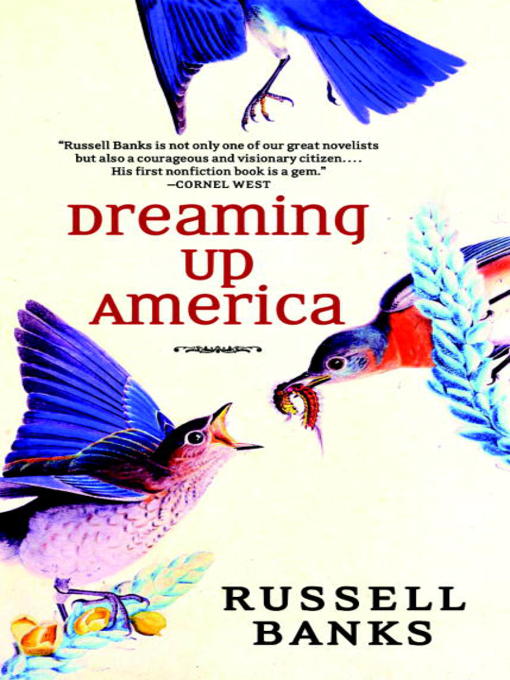
Dreaming Up America
کتاب های مرتبط
- اطلاعات
- نقد و بررسی
- دیدگاه کاربران
نقد و بررسی

April 28, 2008
Two years ago, novelist Banks was interviewed by French television for a documentary about American history. His testimony so impressed Banks's French publisher that he made a book out of his remarks, translated into French, co-released with the documentary. Now Banks's words have returned stateside. Unfortunately, they do not travel well. Letting a gifted storyteller like Banks have a go at telling the story of America isn't a bad idea—his voice is appealing, and the brevity and scope of his tale are bracing. As condensed histories go, this is a good one. Banks creates a clear and simple dynamic, identifying three original dreams—for profit, for religious freedom, for eternal youth—that have struggled within our body politic throughout our history. His text, however, betrays a dogmatic agenda—left of center, antiwar and self-righteous—undermining the simplicity that might otherwise be a virtue. Fuzzy generalizations like “Americans have always believed in the almost spiritual beauty of machinery” give way to harsh indictments of presidents Wilson, Reagan and the Bushes, as the charming historical survey turns shrill (“Rockefeller didn't believe in the American dream, but everyone who worked for him did”). Banks is eloquent here, but in a sense perhaps unintended, he's dreaming.

September 15, 2008
Best-selling novelist Banks's ("Cloudsplitter; The Sweet Hereafter") first work of nonfiction was developed from a television interview with a French documentary producer two years ago, which was translated into French and is now available in English in the United States. Originally directed to a French audience to describe the history of the American people, the content is nonetheless enlightening to Americans, too. The book presents, essentially, an interdisciplinary overview of America from Colonial times to the present and America's development out of spiritual, ethical, and materialistic impulses. Banks's narrative is not always flattering, as he dissects our national myths and exposes the realities, but it may nudge readers to take an introspective look at themselves and our nation. The book is also not comprehensive, but it is a condensed and holistic construct of American history, eloquently written and highly readable. Banks ends with an implicit warning about our nationalism, which he describes as a destructive force, a fervor and mass hallucination, that can control our thinking. Recommended for all public and academic libraries.Mark Alan Williams, Library of Congress
Copyright 2008 Library Journal, LLC Used with permission.

























دیدگاه کاربران